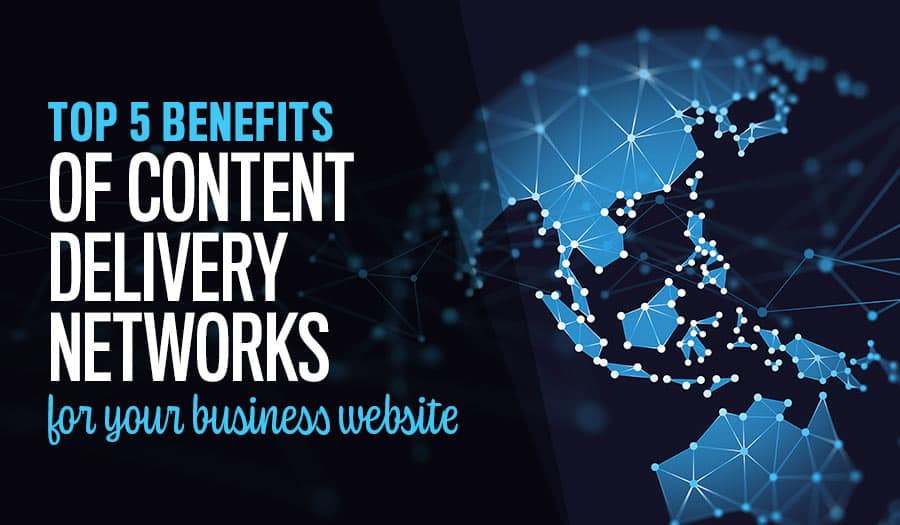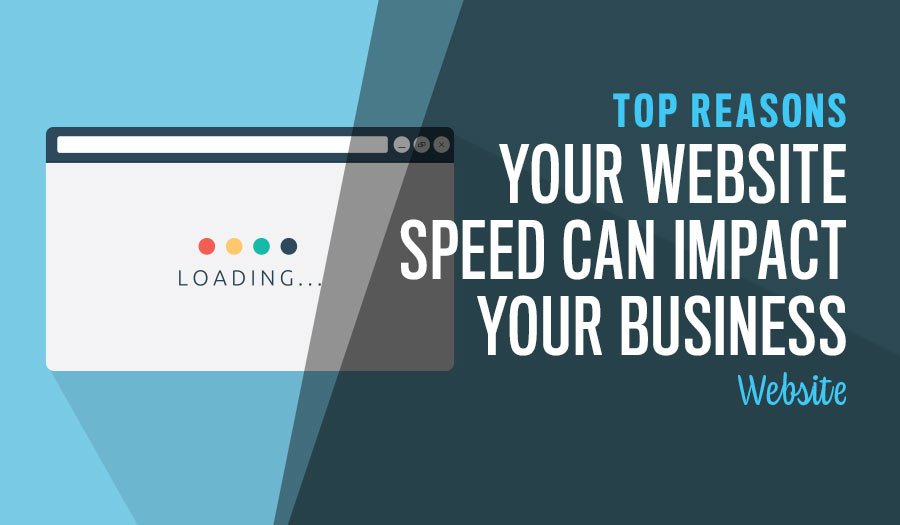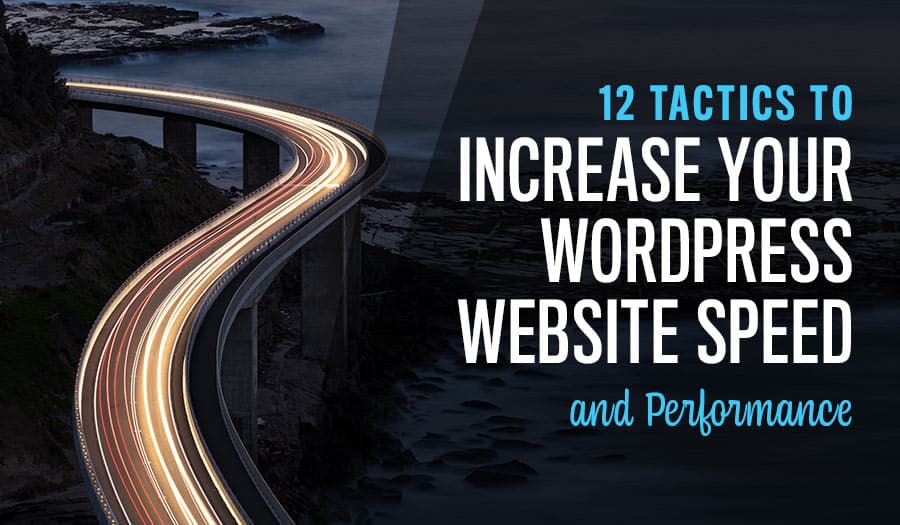These days, websites tend to get visitors from all over the world. How can you ensure that, even if someone visits your site from the other side of the globe, it still loads efficiently? The answer: content delivery systems, short CDNs.
Over the past few years, CDNs have become a staple of high-performing websites. They don’t just improve website loading times for far-away audiences but can also reduce bandwidth costs as well as content downtimes while improving both security and search engine optimisation.
That’s a lot to accomplish for a simple step as you build out your website and determine its backend structure. In this guide, we’ll dive into the nature of CDNs and how businesses can benefit from them, along with our favourite service providers in the field.
What is a Content Delivery Network?
In technical terms, a content delivery network (CDN) is a system of proxy servers distributed geographically to optimise availability and performance regardless of the origin point. In simple terms, it’s a way to distribute responsibility for your website. A network of servers set up across the world stores cached versions of your website that are easy to access for audiences who might not be close by.
Think of it this way: if you’re just trying to reach local audiences, the distance the data that displays your website has to travel to them is relatively minimal. But if there is an ocean between your website data and your audience, that data takes longer to travel and becomes less reliable. A CDN ensures that the data is always nearby regardless of where your audience is.
To accomplish that goal, CDNs place their servers at the exchange points between different Internet networks. That sets up a global connection in which data is passed from server to server, drastically improving the security and speed delivered to the end user.
Importantly, though, CDNs are not dedicated, web hosts. They don’t actually store the core of your website and only help with the delivery of that content.
Top 5 Core Benefits of CDNs
In modern website design, content delivery networks are no longer optional. Practically every major website in the world, from Facebook to Amazon, uses CDN to show its website to its audience. Today, more than 27 million websites use a CDN, and they do so for specific reasons. Five reasons, in fact, all of which we’ll break down below.
- Improved Website Speed
- Reduced Bandwidth and Related Costs
- Reduced Content Downtimes
- Improved Website Security
- Improved SEO
1. Improved Website Speed
We know about the importance of website speed, which can make a difference between keeping and losing your audience. A CDN can deliver significantly faster website loading times by getting the content closer to your audience. In more technical terms, it accomplishes that goal through a number of factors:
- Decreased latency is the delay between a request for your website and the time it actually gets delivered. Every microsecond matters here.
- Caching stores data on the more local servers that can then be recalled more quickly. Especially cached videos, JavaScript, and other data-heavy content loads significantly faster.
- Compression reduces the size of the data pieces to be transferred. While not a technical requirement for CDNs, most service providers offer compression abilities.
2. Reduced Bandwidth and Related Costs
Thanks in part to the above optimisations and the fact that fewer data transfers have to happen from your website hosting server, CDNs can significantly lower bandwidth costs. You simply won’t have to pay as much for the traffic entering and leaving your website and the data strain that could otherwise be put on your website server.
At the same time, a CDN can prevent embedding your images and other visual content. You might not know it, but anytime someone embeds an image hosted by your website, a data request (originated through a simple view of that image in its embedded spot) is made to your server, increasing traffic and bandwidth as a result. Through a CDN, you can also minimise bandwidth in this way, leading to lower hosting costs, a benefit especially relevant for cash-strapped small businesses.
3. Reduced Content Downtimes
What happens when your website traffic increases? What should be a reason to celebrate can quickly turn into a nightmare if your server can’t handle the additional bandwidth and requests. Through CDNs, that doesn’t tend to be nearly as much of a problem.
That’s because the replicated content of your website is now distributed across different servers around the world. If one goes down, another can pick up the slack. Generally speaking, and because they’re optimised specifically for it, content delivery networks tend to be well-prepared for traffic spikes and server hardware issues
4. Improved Website Security
You may not know much about DDoS attacks, but they’re often in the news to realize just how much damage they can do. Good thing, then, that CDNs have built-in security options to specifically prevent them (and other security threats) from happening.
It starts with the implementation of firewalls specifically designed to combat DDoS tactics. Other providers allow websites to hide their origin server IP address, making it more difficult to attack. Finally, a CDN can help to improve your security certificate, making it a great overall choice for improved website security.
5. Improved SEO
Bringing it all together and implementing a CDN to drive your website data to your audience can come with significant benefits of search engine optimisation. It starts with the website speed, which search engines like Google consider one of their most important user experience ranking factors. Better uptimes also contribute to a more positive view of your site, which can drive higher search rankings and click-throughs.
Our Favourite CDNs, and Why We Love Them
All the above benefits of CDNs, of course, are primarily theoretical. You must find the right service provider to make sure you realise them for your online presence.
When you work with our Website Hosting and Support services, we will recommend our two favourite CDNs: CloudFlare and Google Cloud Platform. While those are far from your only options, they’re our preferred partners for reasons we’ll break down below.
CloudFlare
CloudFlare might just be the biggest name in the CDN space, which is considerable given the many giants competing for attention here. We love it because of just how stable its performance is, with almost no downtime across its servers and the consistent ability to deliver your content quickly and safely.
In other words, CloudFlare is the steady hand in the content delivery network game. Its reliability is tough, if not impossible to beat by any of its competitors.
Google Cloud Platform
It’s probably not a surprise that what might be the biggest name in technology also plays a major role in the CDN process. Originally built as an internal network to push data for its search engine and related products all over the world, the Google Cloud Platform is available to other users for the same purposes as well.
Needless to say, it’s pretty great. Google can rely on servers across the globe, with almost no “dark spots” to speak of. No matter what audience you’re trying to reach, the Google Cloud CDN will make it easier.
When considering Google for your CDN needs, it’s worth reading into the load balancing concept that drives the speed and efficiency of its network. It provides both stability and speed, although it’s worth noting that the security services delivered through Google are lower than the standards provided by competitors like CloudFlare.
Other Options
Of course, many options beyond CloudFlare and Google Cloud CDN are available for websites looking to more efficiently and safely deliver their website regardless of visitor location. tech Radar provides a good overview of some alternatives, like Fastly and KeyCDN, along with their advantages and disadvantages.
Ready to Build a Better Website?
Ultimately, a content delivery website is a crucial component of the process when building a new website. Of course, you have to make sure that you choose the right option for your needs and that the option you choose matches up well with your audience, website goals, and the website host you’ve chosen for your online presence.
At PixelFish, for instance, we use Kinsta as our preferred website host. It has proven to work well with Google Cloud Platform and CloudFlare, making a great pairing to unlock the CDN benefits we’ve outlined above. That combination, leading to flawless delivery of content, is key to building the user experience you need to reach your marketing and business goals.
At the same time, it can be difficult to be an expert on so many website-related items. You likely won’t have time to dig deep into your next perfect CDN’s benefits, nuances, and implementation needs. Fortunately, you don’t have to. We’d love to work with you, applying our expertise to help you build and optimise that website. Contact us today to start the conversation.
Take your business to the next level with a Pixel Fish Website.
Check out some of our latest Website Design projects.
Further Reading
10 Tips that Maximise Your WordPress Website Design ROI
12 Tactics to Increase Your WordPress Website Speed
10 Best Practices for Installing New WordPress Plugins
More Reading
5 Great Tips for Improving Your organic Google Ranking
The 3 Keys to Writing Copy for Websites
8 Proven Successful Online Store Product Types
What is Inbound Marketing and how does it work?
How can SEO help my business?
10 Best Practices for a Successful WordPress Website Design Project
Best Practices for Optimizing Your WordPress Website Performance
12 Steps to Shift Your Business to an Online Delivery Model Business
Website Jargon Explained: Top 25 terms you need to understand
How to Create the Perfect WooCommerce Website
Top 8 Advanced WordPress Features and Plugins to Beat Your Competition



